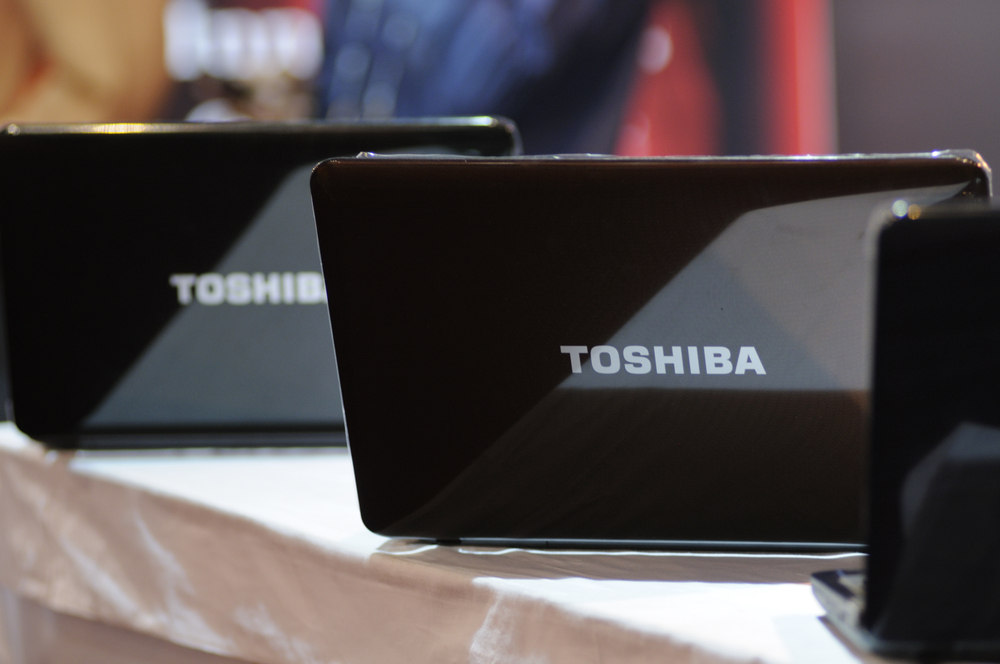
Toshiba bows out of Windows RT, Microsoft works damage control
Toshiba is the third Microsoft OEM to pass on Windows RT, saying Tuesday that it has cancelled all plans for devices based on the platform for the foreseeable future. The announcement follows the very public comments of Acer CEO JT Wang, whose comments on Surface suggest his company isn't interested either, and a similar move by HP back in June.
"Toshiba has decided not to introduce Windows RT models due to delayed components that would make a timely launch impossible. For the time being, Toshiba will focus on bringing Windows 8 products to market", a company spokesperson tells BetaNews.
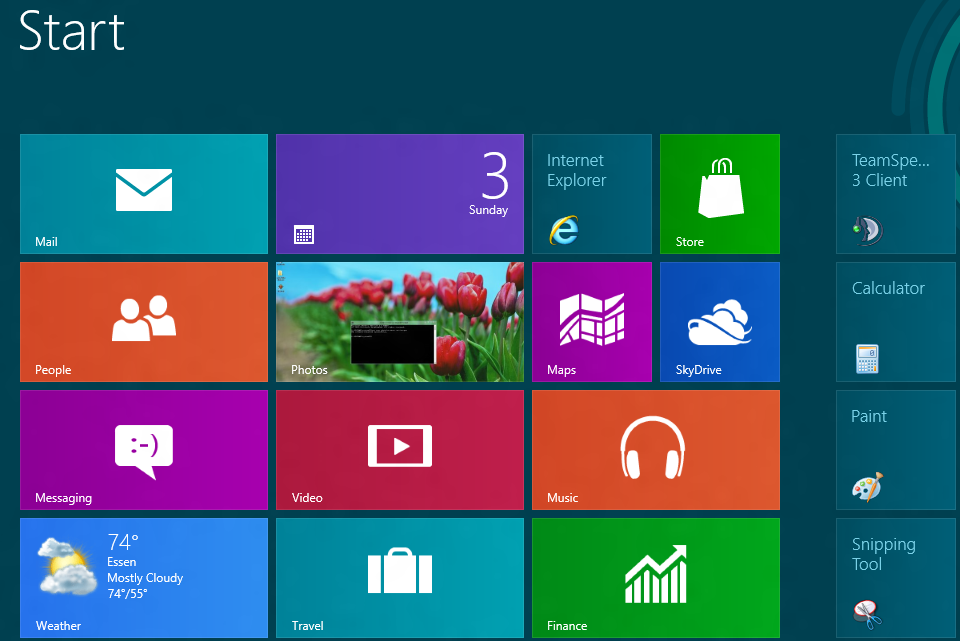
Is Microsoft planning to ditch Intel post-Windows 8?
It's a radical thought. What if Microsoft is secretly planning to ditch Intel? With all of the recent talk about Windows RT "PCs", distinctions between the consumer roles associated with RT-based devices and the more traditional PC roles normally reserved for Intel-based systems have become blurred.
Suddenly, usage scenarios and form factors that were firmly part of Intel's territory are being encroached upon by a cornucopia of non-x86 Windows offerings. And cheering them all on is the chip maker's longtime comrade-in-arms, Microsoft. The Redmond, Wash.-based behemoth has been looking for a way out of the Wintel duopoloy for some time now, and the combination of increasingly powerful ARM designs and a tepid response to Intel's Ultrabook campaign has given the company the perfect opportunity to step out on its old partner.
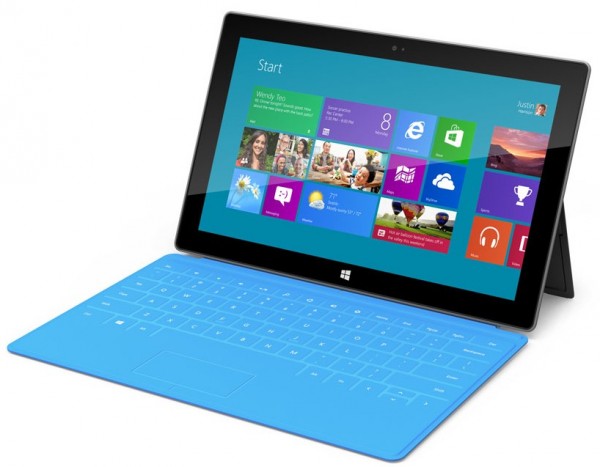
Microsoft makes its own hardware and software rules, and that’s a good thing
Acer CEO JT Wang has been quoted as saying Microsoft's Surface could have a negative impact on the Windows ecosystem, frustrate OEMs, and potentially have far-flung negative consequences. Why is there a problem when Microsoft wants to set a standard in both hardware and software? Windows Phone, Surface, and Signature represent a generational shift in Microsoft’s thinking related to operating systems, hardware, and the intended software experience. This is the Microsoft that should surface (no pun intended) from every interaction with one of their products, and who’s to say that’s not a good thing?
When Microsoft announced Surface, I immediately saw great potential for people like me who need advanced software to perform real tasks that require an intensive use of resources. But at the same time, Microsoft Surface gave a glimpse of what’s to come: Microsoft can actually make hardware to its own specifications and design. It is an approach that has been slowly coming to the front with Microsoft which began three years ago, before the debut of the first Windows Phone. Working closely with HTC, Microsoft could make sure the hardware performed in such a way that its software looked better.

IDC Appcelerator survey reveals what app developers love and hate the most
International Data Corporation (IDC), in partnership with mobile platform company Appcelerator, announced results of a global survey of Appcelerator developers on Tuesday, The survey created a detailed profile of developers' outlook on the market, with a particular focus on development for enterprise.
At a high level, the survey showed that developers believe Apple is leading the charge in the enterprise mobile deployment; see Android only as a consumer opportunity; are excited about remote cloud service integration; and are cautiously optimistic about Windows 8 and Windows RT tablets; but see Windows Phone as disappointing.
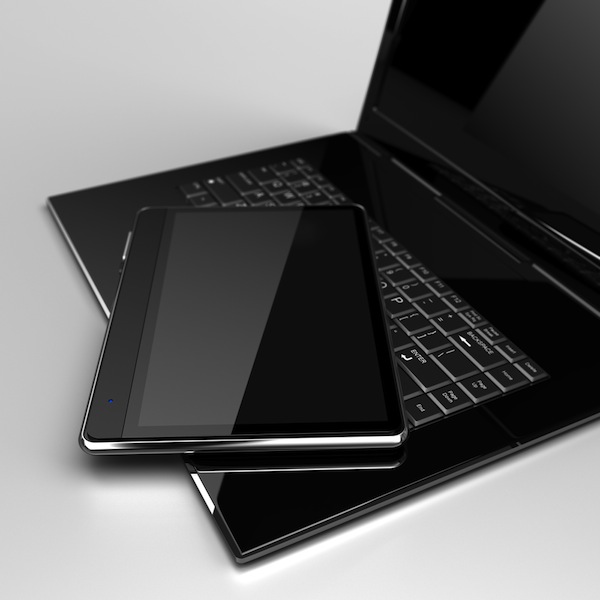
You can't do real work on a tablet
Whenever I think about tablets v. PCs, I remember a bold prediction of old: “Son, 10 years from now everyone will drive an electric car!” When was that, 20 years ago? We’ve all read something like that from someone believing to be clairvoyant.
I read similar articles almost every day where the writer plays the same old broken record: tablets are the death of PCs, or some other flamboyant thing that’s bound to get interest -- with the hope that the reader will agree with the author. It's like almost everyone is set on sending the PC down to the gates of Hell. But why should I agree with their assertions when I actually need a PC?
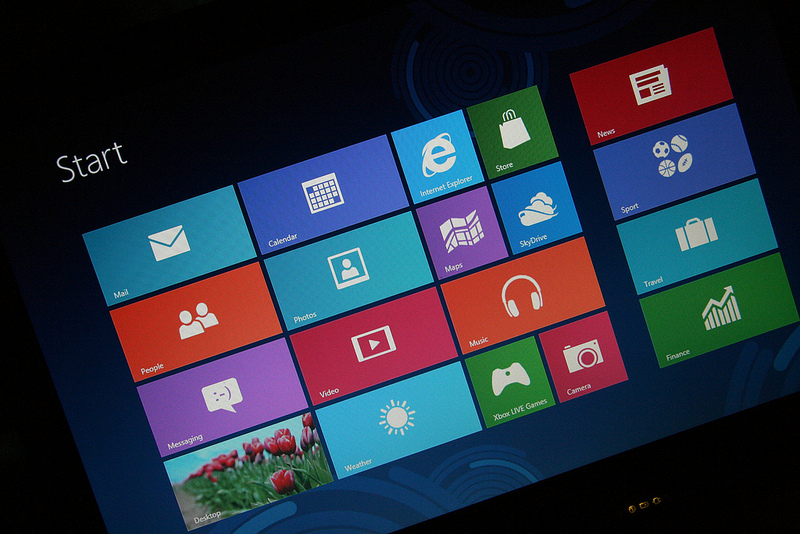
EU trustbusters tire of Microsoft tricks, probe Windows 8
Just days after opening a new Microsoft investigation, European antitrust regulators have broadened the scope. The software giant already faces possible multi-billion dollar sanctions for non-compliance with a 2009 agreement. European Windows users are supposed to get browser choice, but a ballot box mysteriously disappeared when Windows 7 Service Pack 1 released in February 2011. The European Competition Commission has since added Windows 8 to the investigation.
The agreement, which expires at the end of 2014, requires that a browser choice screen must appear in all copies of Windows, including version 8. The browser choice screen allows a dozen alternate third-party browsers to be shown as options for installation besides Internet Explorer -- when starting IE each time, or starting Windows for the first time. Microsoft faces new allegations the browser choice screen is missing from the final version of Windows 8 and Windows RT.

Microsoft Q4 2012 by the numbers: $6.2B charge saps record quarter
Microsoft closed its fiscal year in relatively good shape, despite globally slow PC sales that weighed down Windows division sales and product transition period that affected some others. The Redmond, Wash.-based company has a heap load of new products in queue for the next three quarters, causing some customers to delay purchases.
However, a one-time $6.19 billion impairment goodwill charge, related to the Online Services Business, and $540 million deferral led Microsoft to post a 6 cents-per-share loss -- or $492 million, after taxes. The deferral covers upgrade guarantees related to Windows 8's launch.
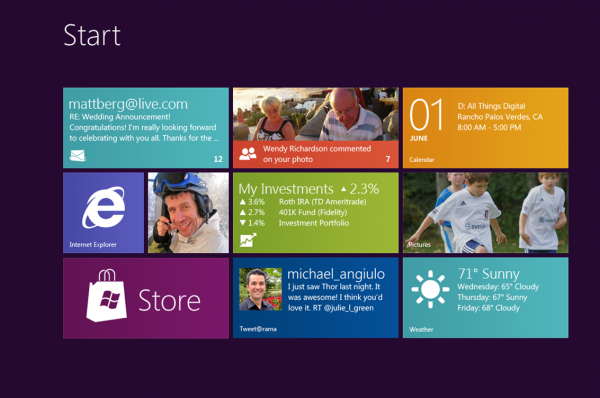
Windows 8 launches October 26
Steven Sinofosky, president of the Windows & Windows Live division, announced the date during a Microsoft sales meeting this afternoon. Windows 8 follows other October launches -- its predecessor (Oct. 22, 2009) and XP (Oct. 25, 2001). Vista should have been as well, but Microsoft couldn't ship soon enough, unbelievably missing Christmas 2006.
Microsoft plans to release gold code the first week of August and make Windows 8 immediately available to volume-license subscribers. Everyone else will wait for Windows 8.

Office politics are killing Windows 8
A letdown. That's the only way to describe Microsoft's Office 2013 announcement. With the fate of the Windows ecosystem hanging in the balance, the Redmond, Wash.-based giant is doing what it always does when faced with a tough, course-changing decision: It’s playing internal politics.
On one side you have the Windows division. Right now, they're facing an existential crisis, with Apple and Google poised to dominate the emerging post-PC landscape. Division head Steve Sinofsky and his team need all the help they can get to crack into this new territory that threatens to subsume everything that came before.
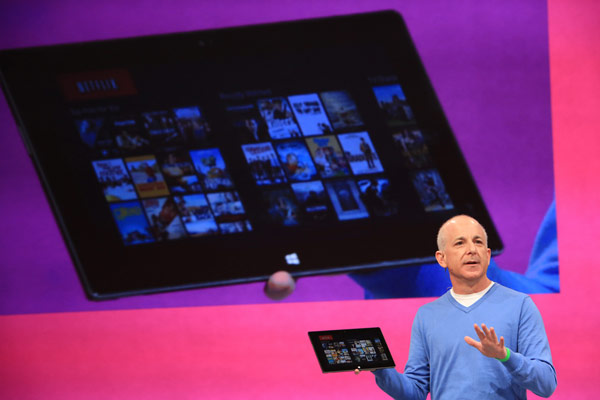
Only Microsoft Surface can compete with iPad on price
It’s an addiction. For nearly three decades, the PC industry has gorged itself on profit margins. Whether it’s a “premium” line of notebooks or the latest uber-gaming rig, vendors have always managed to squeeze enough margin out of their product offerings to line their respective silk purses. And who rides shotgun to this PC profit gravy train like some deranged, hypodermic-carrying monkey? Microsoft.
The Redmond, Wash.-based behemoth injected itself into the basic PC equation a generation ago, and it has milked the OEM license revenue stream ever since. Fortunately for them, average selling prices across the spectrum of PC categories helped offset this Microsoft addiction “surtax”. After all, what’s $70, $80 or $100 when the system in question retails somewhere just north or south of the $1,000 mark?
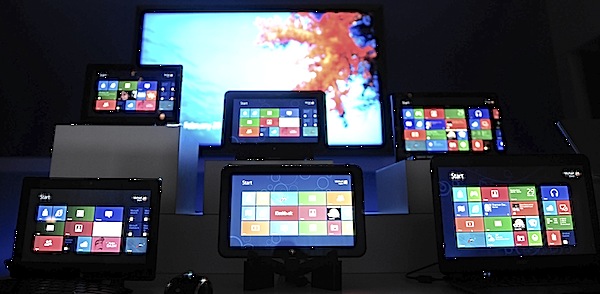
Will you buy Windows 8?
I told you so back in February that Windows 8 would debut in October -- not that it was rocket science to me. Nevertheless I wrote: "Windows 8 must RTM by end of August to make October launch, which is best timeframe assuring the channel is stocked for Black Friday". Today, Microsoft revealed that its next-generation operating system would release to manufacturing in early August and be available at retail in October.
Microsoft's timing is sheer brilliance. We already know that Surface tablets will ship simultaneously with Windows 8, and OEMs have shown off a boatload of new models coming for the holidays. Apple plans to release OS X Mountain Lion this month, perhaps in days. Anyone considering a shiny new Mac suddenly has reason to wait. Will Surface or Windows 8 slates be worth the wait? Mountain Lion's user interface is oh-so yesterday, while Windows 8 Metro is oh-so tomorrow -- well, for anyone who actually likes it. Now that we know when, it's time to ask if you will buy. That's a question you can answer in comments and the poll below the fold.
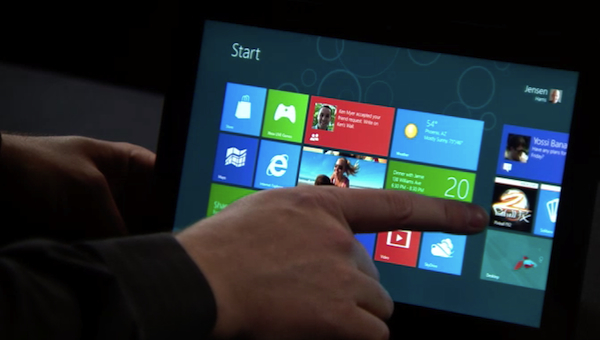
What if Windows 8 fails?
It’s the hypothetical scenario many IT pros try to ignore: What if Microsoft’s Windows 8 launch is a dud? What if Surface is a flop, the $40 upgrade promotion fizzles and all of those slick new Windows RT tablets don’t fly off the shelves?
Given today’s consumer-driven BYOD IT culture, it’s a very real possibility. The Windows ecosystem simply doesn’t hold the gravitas it once did, with users finding every possible excuse to cut the enterprise cord and dump their clunky old IT-issued laptops and desktops. It’s like the cold war-era Soviet Union facing off against Western society: Once the populace got a taste of Levis and free speech, there was no holding them back.

HP should save the enterprise from Windows 8
With Microsoft bringing their own branded tablets to market, what is left for major OEMs like Hewlett Packard? One's first reaction may be to consider trying to do one better with the hardware. While this is still possible, maybe HP should consider getting back into the software business.
HP is making a good decision by concentrating on the x86 platform, rather than ARM in future tablets. Windows RT is untested at this point. Also Windows RT will not run the huge existing x86 based Windows software base that dwarfs any current app store in quantity and quality. There can be many advantages to HP's current decision.

Microsoft's road to redemption
Microsoft just put behind it an eventful and positive week, coming off two major announcements on its two major computing platforms -- Windows and Windows Phone: Surface and WP8. Consumer and expert scepticism hobbled much of the excitement, as Microsoft nose dives into paradigm change. Nevertheless, the third week of June 2012 is indicative of a profoundly new direction for Microsoft, characterized by refreshing perspectives and paves a path that leads ultimately in the right direction.
Microsoft is making genuine inroads towards a new strategy that represents a complete paradigm shift from the fundamentals that defined the company and its products over the last couple of decades. The company used to be the antithesis of Apple in practically every sense, selling products based on the abundance of choice as opposed to Apple's strategy of marketing a small hardware lineup. Apple's strategy has always focused on ease of use, simplicity and form; whereas Microsoft, although not neglecting form and aesthetic, put functionality first and foremost and wrapped design around this in the most appealing way possible. The announcements this week represent a fully-committed digression from this strategy from Microsoft.
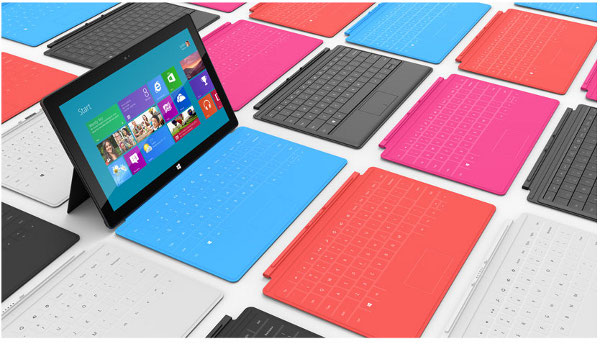
Microsoft’s Surface pricing dilemma is two opportunities waiting to be missed
In an article that appeared earlier today on BetaNews, Robert Cringely talks about how Microsoft can compete with Apple on pricing but -- due to supply and manufacturing issues -- won’t be able to undercut its rival. It’s an interesting observation, and one that’s based on sound thinking.
But Surface is a curious beast. The iPad is, to all intents and purposes, a scaled-up Smartphone. Microsoft’s tablet (or tablets, rather) is a touch-screen PC. It runs Windows 8, and Office, and applications like Photoshop.
